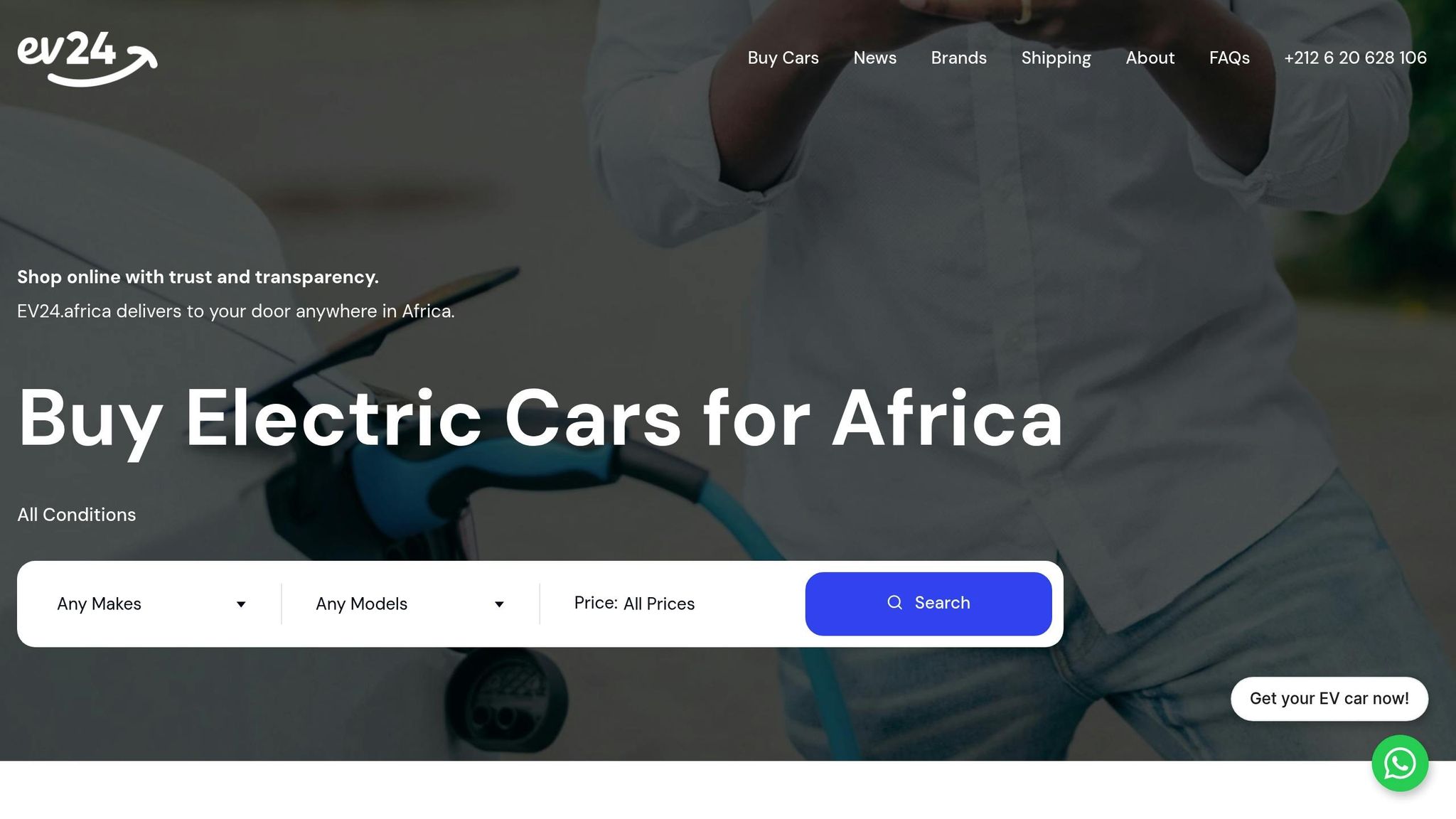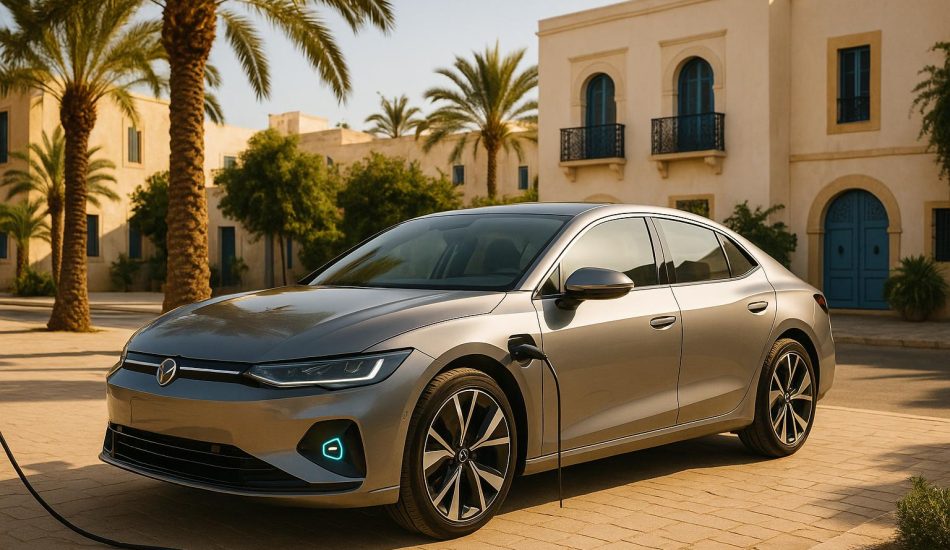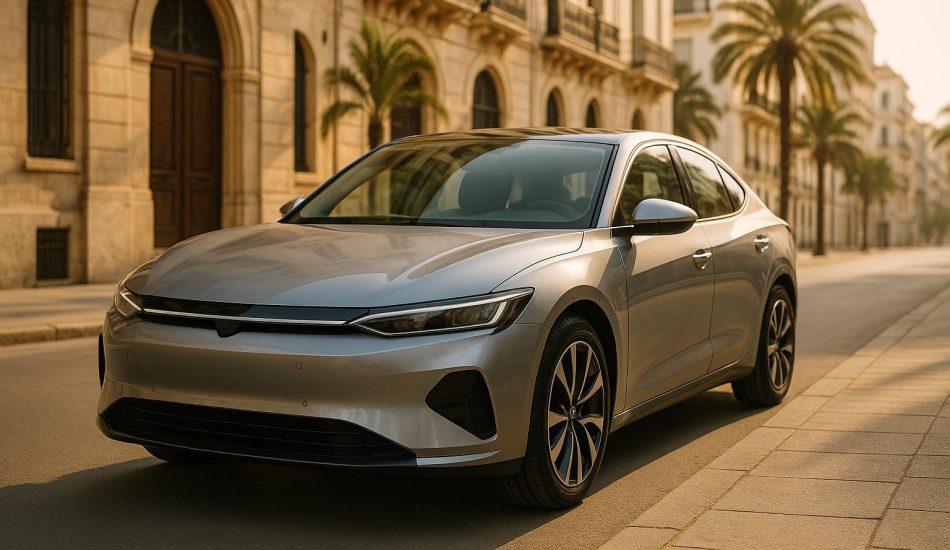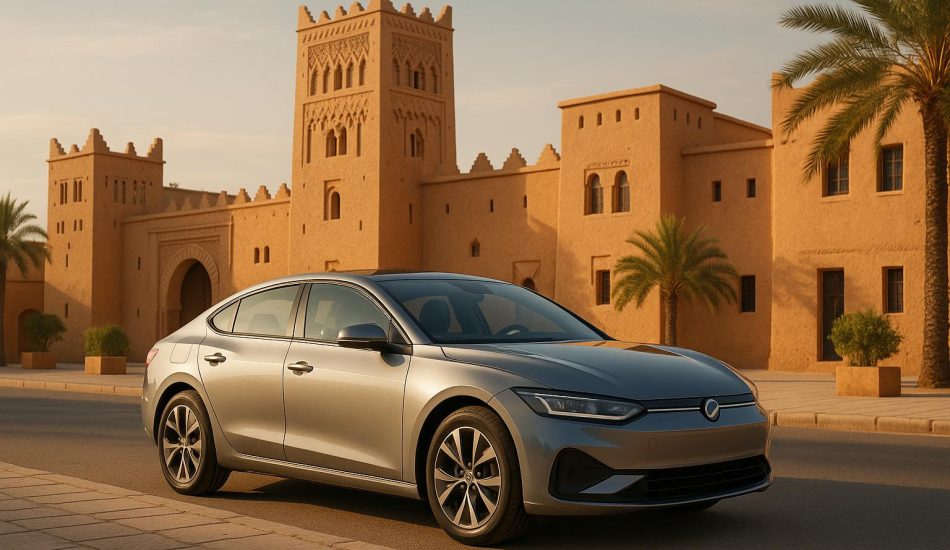
Mozambique’s new 2025 EV import policy introduces significant changes to encourage electric vehicle (EV) adoption and reduce reliance on fossil fuels. Here’s what you need to know:
- Import Fees: A 16% reciprocal tariff applies to most EV imports. However, customs duty and VAT exemptions are available for certain EV components and projects.
- New vs. Used EVs: New EVs enjoy simplified processes, while used EVs face stricter inspections, age, and mileage caps.
- Required Documentation: Importers must provide detailed paperwork, including a Certificate of Conformity, pre-shipment inspections, and more.
- Tax Incentives: Businesses in Special Economic Zones or Industrial Free Zones benefit from tax credits and exemptions.
- Challenges: Limited charging infrastructure and inconsistent electricity access remain key barriers to widespread EV adoption.
- Support Services: Platforms like EV24.africa streamline the import process, offering compliance assistance, financing, and delivery options.
This policy aims to modernize Mozambique’s transportation sector while addressing economic and environmental pressures. Importers and businesses should prepare for these changes to maximize benefits.
New Laws and Government Objectives
Mozambique’s 2025 EV import policy marks a shift in the country’s approach to vehicle imports, aiming to create a cleaner, more sustainable transportation system. This framework reflects the government’s commitment to reducing environmental impact and modernizing its automotive market.
The policy is the result of years of focused planning, culminating in the draft national electric mobility strategy. This initiative highlighted the urgent need for policies and incentives to encourage the adoption of low-carbon vehicles. These efforts laid the foundation for the new regulations that are now in place.
Legal Changes Summary
The updated legal framework introduces stricter rules to ensure imported vehicles meet safety, quality, and environmental standards.
New safety measures mandate thorough inspections of brakes, lights, tires, and overall roadworthiness. This is especially important in cities like Maputo, where many vehicles are over a decade old, and electric vehicles are still a rarity.
To tackle air pollution, the government has also implemented tighter emissions standards.
"Millions of used cars, vans and minibuses exported from Europe, the USA and Japan to low- and middle-income countries are hindering efforts to combat climate change. They are contributing to air pollution and are often involved in road accidents. Many of them are of poor quality and would fail road-worthiness tests in the exporting countries." – UNEP
Additionally, documentation requirements have been tightened. Importers must now provide detailed records of ownership, maintenance history, and emissions compliance. For goods valued over $500, an import license is required, which includes specific details about the country of origin, shipping routes, and payment information.
All used vehicles must undergo a pre-shipment inspection by Intertek. Importers must also present key documents such as commercial invoices, bills of lading, pro forma invoices, and certificates of origin, authenticated by the chamber of commerce.
These measures are part of Mozambique’s broader strategy to create a safe and sustainable electric vehicle market.
Rules for New vs Used EVs
The policy distinguishes between new and used electric vehicles, recognizing the unique role each plays in the market. Used vehicles dominate imports, particularly from countries like Japan, which supplies right-hand-drive models.
For new EVs, the process has been simplified. These vehicles require less documentation and benefit from faster approvals, aligning with the government’s goal to attract investment and promote cutting-edge clean technology.
Used EVs, however, face stricter scrutiny. Given that 80-90% of vehicles imported to countries like Kenya, Ethiopia, and Nigeria are used, Mozambique has introduced age and mileage caps to ensure quality. With 40% of global used light-duty vehicle exports heading to Africa, these regulations aim to maintain higher standards.
This two-tier system reflects Mozambique’s strategy to balance economic realities with the push for cleaner, more reliable vehicles. By addressing the needs of both new and used EV markets, the government seeks to ensure transparency and predictability while gradually transitioning to a more sustainable future.
Import Fees and Tax Benefits
Mozambique is stepping up its efforts to encourage cleaner transportation by revamping import fees and offering tax incentives to support the adoption of electric vehicles (EVs). Here’s a closer look at the costs involved and the relief programs available for EV importers.
Complete Fee Breakdown
The main cost for bringing EVs into Mozambique is the reciprocal tariff, currently set at 16%, effective starting August 1, 2025. Interestingly, this tariff does not apply to vehicles or parts subject to Section 232 tariffs at the time of import, which can lead to significant savings for importers.
In addition to the reciprocal tariff, there’s the Value Added Tax (VAT) on capital equipment imports. However, the government offers exemptions on both customs duties and VAT for items listed under Section K of the Customs Tariff Schedule. This structure is designed to encourage newer, cleaner vehicles, with higher taxes imposed on vehicles older than seven years.
Another mandatory cost to consider is the pre-shipment inspection fee for used vehicles, which must be conducted by Intertek. While these fees add up, Mozambique’s tax incentives can significantly reduce the financial burden for EV importers.
Available Tax Discounts and Programs
Mozambique has introduced several programs aimed at lowering import costs for businesses and investors in the EV sector. Tax and customs incentives are guaranteed for investments, with benefits tailored to the type and location of the project. For instance, companies operating in Special Economic Zones (SEZ) or Industrial Free Zones (IFZ) can take advantage of exemptions from Corporate Income Tax (CIT) and customs duties.
One standout incentive is the investment tax credit, which ranges from 5% to 10% of the total investment in assets directly tied to production activities. This credit can be carried forward for up to five years and offset against gross income tax, with rates depending on the project’s location. Additionally, businesses can benefit from accelerated depreciation, allowing them to increase normal depreciation rates by 50% for new or refurbished buildings, machinery, and equipment used in industrial or agro-industrial activities.
Importers should also explore whether their projects qualify for other incentives, including generic tax benefits, sector-specific perks for the processing industry, or tailored incentives for investments in Science and Technology Parks. Notably, the government has announced an exemption from customs duties on imported EV components for companies investing in EV infrastructure. While agriculture and fisheries enjoy a 10% CIT reduction until 2025, this particular benefit may not be relevant for most EV importers.
To maximize these incentives, importers should verify if their investments are located in designated zones and review Section K of the Customs Tariff Schedule for applicable equipment exemptions. Mozambique’s National Electric Mobility Strategy underscores the government’s commitment to expanding EV infrastructure and aligning incentives with its broader goals of promoting electric mobility and enhancing regulatory frameworks.
Import Process and Required Documents
Bringing an electric vehicle (EV) into Mozambique requires careful attention to documentation and strict adherence to regulations. The process involves multiple steps, including obtaining essential licenses and completing mandatory inspections, all aimed at ensuring vehicles meet the country’s safety and quality standards.
Complete Import Process Guide
To start, every importer must obtain a license from the Ministry of Industry and Commerce to avoid potential delays or penalties.
One of the first steps is securing a Certificate of Conformity (CoC), which has been mandatory for all regulated products since June 27, 2025. This certificate, issued by an authorized body, must be acquired before shipping the vehicle to Mozambique. Since July 2025, Mozambique’s National Institute of Standards and Quality (INNOQ, IP) has partnered with Intertek to oversee the Conformity Assessment Programme, making Intertek the primary authority for issuing CoCs for imported vehicles.
After purchasing the vehicle, you must arrange a pre-shipment inspection, which is also mandatory. For EVs, this inspection must be conducted by Intertek. Importers must apply for the inspection and secure a MOZ number from Intertek in Maputo using the vehicle’s engine number.
The required documentation is extensive and must be meticulously prepared. Here’s what you’ll need:
- Original Certificate of Title and Registration
- Original Commercial/Purchase Invoice showing the exact purchase price
- Driver’s License
- International Insurance Policy (green card)
- Certified Copy of Passport
- Original Bill of Lading, which must include details like the chassis number, engine number, cubic capacity, year of manufacture, brand, and model
The Bill of Lading serves as proof of shipment and provides the technical details customs officials use to verify the vehicle.
Maputo is the main port for vehicle imports, making it the most practical entry point for EVs. Mozambique imposes no age restrictions on imported vehicles, and right-hand drive vehicles are generally allowed, with exceptions for specialized vehicles like ambulances.
However, navigating Mozambique’s import regulations can be slow due to the bureaucratic processes involved with the Mozambican Tax Authority. Ensuring all documentation is accurate and complete is crucial for avoiding delays.
Real Import Examples
Failing to meet compliance requirements can lead to severe consequences, including financial penalties, forced re-export, or even the destruction of the vehicle. For instance, any EV arriving without the proper Certificate of Conformity risks significant setbacks.
To sidestep these issues, many importers now rely on specialized services to handle the complex documentation process. Observations from nearby countries highlight the value of professional assistance in managing regulatory challenges. These services often streamline the process by leveraging experienced teams who are well-versed in Mozambique’s requirements.
A proactive approach is essential for smooth imports. Informing exporters about Mozambique’s compliance requirements before shipment ensures all necessary certificates and documents are prepared correctly, reducing the risk of customs delays. Exporters who are familiar with the country’s rules can work with Intertek to secure the Certificate of Conformity and ensure all paperwork aligns with Mozambique’s standards.
For those working directly with overseas dealers, clear and early communication about Mozambique’s documentation needs can save both time and money.
It’s also worth noting that completing all documentation and inspections can take several weeks beyond the vehicle’s arrival at the port, especially for first-time importers. Experienced importers recommend starting the documentation process as soon as the purchase is confirmed, rather than waiting for shipping arrangements to be finalized.
sbb-itb-99e19e3
Market Effects and Consumer Impact
Mozambique’s new electric vehicle (EV) import policy has the potential to reshape the country’s transportation landscape. This shift arrives at a time when Mozambique spent a staggering $3.57 billion on imported fossil fuels in 2022, with fuel prices averaging $1.35 per liter. These high costs highlight the appeal of transitioning to more sustainable mobility options. However, the policy’s success will depend on how effectively the market adjusts to these changes, especially in terms of EV affordability.
Changes to EV Prices
The introduction of tax incentives is aimed at reducing the traditionally high costs associated with importing EVs. Historically, steep import duties and consumption taxes have made EVs prohibitively expensive for many Mozambicans.
Dalila Tsihlakis, Vice-president of AIDAM, sheds light on these challenges:
"Most of us are prepared to follow this path, but it’s impossible, since our electric vehicles, which are already expensive at source, are subject to the highest level of duty and specific consumption taxes at customs… The value of these subsidies will be much higher than the taxes and exemptions to massify their use".
Mozambique’s move mirrors a global trend, as other nations have also lowered EV import duties to encourage adoption. Additionally, as EV production scales up and battery technology advances, prices are expected to gradually decline, making these vehicles more accessible. While these pricing changes are promising, they are just one part of the equation.
Market Growth Predictions and Obstacles
Affordability is only one piece of the puzzle. Structural challenges, such as limited access to electricity, will play a significant role in determining the market’s growth. Currently, only about one-third of Mozambican households have consistent access to electricity. This issue is even more pronounced in rural areas, where unreliable power grids could severely limit EV adoption.
Another major hurdle is the lack of charging infrastructure. The scarcity of charging stations, coupled with frequent power outages and grid instability, discourages consumers and businesses from investing in EVs. At the same time, Mozambique’s population, projected to reach 45 million by 2035, is expected to drive increased demand for transportation. If infrastructure development keeps pace, this growing demand could position Mozambique as a leader in EV adoption within the region.
The dominance of the used vehicle market in Africa also complicates matters. Across the continent, 40% of global exports of used light-duty vehicles are sent to Africa, and in countries like Kenya, Ethiopia, and Nigeria, 80–90% of imported vehicles are used. Striking the right balance between incentivizing new EV purchases and addressing the realities of a thriving used vehicle market will be crucial for making sustainable transportation accessible to a broader audience.
Experts suggest that Mozambique prioritize investments in EV-friendly infrastructure. This includes expanding charging networks, improving grid capacity, and incorporating more renewable energy sources. Smart technologies and regulatory frameworks could also play a role, enabling EVs to support grid stability through dynamic charging and vehicle-to-grid systems. Ultimately, the success of the new policy will hinge on Mozambique’s ability to pair these infrastructure upgrades with the incentives designed to make EVs more affordable.
EV24.africa Platform Support and Services

As Mozambique adapts to new regulations for importing electric vehicles (EVs), EV24.africa steps in to provide expert assistance, ensuring customers can navigate these changes smoothly while accessing high-quality EVs. With extensive regional experience and proven processes, the platform simplifies compliance with Mozambique’s updated EV import policies.
Import Compliance Support
EV24.africa takes the hassle out of the import process by offering hands-on support tailored to Mozambique’s specific requirements. From customs clearance to registration and import taxes, they handle the entire compliance journey. The platform strictly follows international commercial terms (Incoterms) and ensures all imported vehicles meet local regulatory standards before they reach customers.
Their team stays up-to-date with Mozambique’s evolving EV policies, allowing buyers to focus on their new vehicles without worrying about red tape. Throughout the process, customers benefit from transparent pricing, detailed vehicle specifications, and real-time tracking, ensuring a smooth and stress-free experience.
Platform Benefits for Mozambique Buyers
Mozambican customers gain access to a wide variety of EVs from top global suppliers across Europe, Asia (including China), North America, and Japan through EV24.africa. The platform connects buyers with leading international brands, ensuring a diverse selection to meet varying preferences and budgets.
"EV24.africa is dedicated to facilitating this transition by offering a seamless platform for Mozambican customers to import and purchase top-tier electric cars".
The platform’s delivery network spans all 54 African countries, with Mozambique served via the Port of Maputo. Customers can choose from flexible shipping options, including port-to-port and door-to-door delivery, accommodating both budget-conscious and time-sensitive needs.
With a local presence in Mozambique, EV24.africa understands the market’s unique challenges and opportunities. This enables them to provide tailored guidance and support at every step of the purchasing process. Additionally, the platform offers financing options with competitive pricing and flexible payment plans, making EV ownership more accessible. For those ready to make a purchase, EV24.africa provides clear vehicle specifications and pricing, empowering buyers to make informed decisions with confidence.
Summary: Mozambique’s 2025 EV Import Policy Key Points
Mozambique’s 2025 electric vehicle (EV) import policy represents a significant move toward cleaner and more sustainable transportation. The new regulations aim to address the transportation sector’s substantial environmental footprint, which contributes nearly half of the country’s annual 32.6 MtCO2eq emissions.
Key updates include a clearer distinction between requirements for new and used EVs. For instance, used electric vehicles must undergo a pre-shipment inspection, and any imported vehicle valued over $500 will need an import license. These measures are designed to bring greater transparency and structure to the market.
To make EVs more affordable, the policy introduces tax incentives and fee adjustments. Mozambique currently spends $3.57 billion annually on fossil fuel imports, with fuel prices averaging $1.35 per liter. In response, the government has rolled out customs duty exemptions for EV components and incentives to encourage investments in EV infrastructure, making electric vehicles more accessible to both individual buyers and businesses.
The policy also addresses gaps in the import process, a crucial step given the rapid growth of Mozambique’s vehicle population, which increased by 832% between 1990 and 2017. Approximately 40% of these vehicles are concentrated in the Maputo Metropolitan Region. Additionally, the government has committed to reducing 76.5 MtCO2eq emissions between 2020 and 2030. With a power grid already heavily reliant on renewables (94% renewable energy, including 81% from hydropower), Mozambique is well-positioned to support the transition to electric mobility.
Supporting this shift, EV24.africa aligns with the government’s vision by offering services like compliance assistance, connections to international EV suppliers, flexible delivery through the Port of Maputo, financing options, and expertise in the local market. These efforts aim to help Mozambican buyers navigate the new regulations and transition smoothly to electric vehicles.
FAQs
What advantages does Mozambique’s 2025 electric vehicle import policy offer to consumers and businesses?
Mozambique’s electric vehicle (EV) import policy for 2025 brings several benefits for both consumers and businesses. One of the standout advantages is the potential to cut reliance on imported fuels, which could translate into lower transportation costs and more stable energy prices. This shift not only helps individuals save money but also aligns with the country’s broader push toward cleaner energy solutions.
The policy also introduces financial perks, including motor tax exemptions for EVs that meet specific low-emission or range standards. These measures are designed to make EV ownership more affordable, opening doors for individuals and businesses alike to embrace modern, eco-friendly transportation options.
What steps is Mozambique taking to improve charging infrastructure and electricity access for EVs under the 2025 policy?
Mozambique’s plan for 2025 aims to boost the adoption of electric vehicles by focusing on two key areas: building more charging stations and expanding electricity access. The government intends to set up at least five charging stations in each major municipality and 20 in key urban areas, ensuring EV owners have easier access to charging facilities across the country.
In parallel, national energy projects are working to improve electricity availability, especially in rural regions. By addressing infrastructure challenges and enhancing energy reliability, these initiatives aim to make the transition to electric vehicles smoother for both individuals and businesses.
What documents do I need to import a used or new electric vehicle into Mozambique, and how do the requirements differ?
To bring a used electric vehicle (EV) into Mozambique, you’ll need to gather a few essential documents:
- Certificate of title and registration
- Commercial invoice
- Pre-shipment inspection report
When it comes to new EVs, the process is a bit easier. Typically, you’ll only need a purchase invoice and compliance certificates. Plus, pre-shipment inspections are either less stringent or sometimes not required at all for new vehicles.
The key distinction between the two lies in the extra steps for used EVs, such as the pre-shipment inspection and proof of ownership. These measures are in place to verify the vehicle’s condition and legality, ensuring it meets Mozambique’s standards and regulations.




